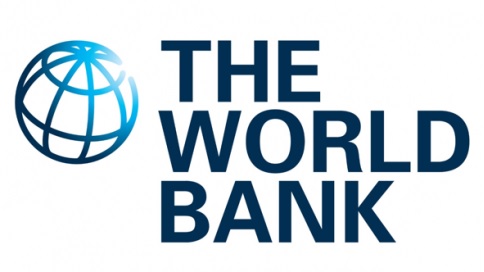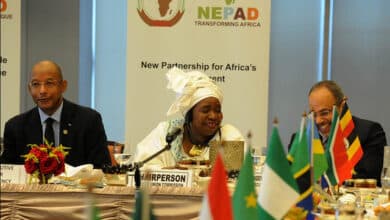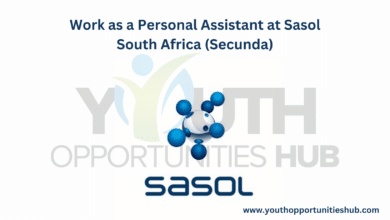THE WORLD BANK DIME GROUP IS HIRING SEVERAL RESEARCH ASSISTANTS

The World Bank DIME group is hiring several research assistants
DEADLINE: 14 March 2022
About DIME
The objective of the World Bank’s Development Impact Evaluation department (DIME) is to increase the use of data analytics and impact evaluation research in the design and implementation of public policy, to increase the effectiveness of development investments, strengthen country institutions for evidence-based policy making, and generate knowledge in strategic development areas. DIME’s diverse portfolio offers interns and consultant’s the opportunity to contribute to projects across all development sectors, including agriculture, public sector governance, climate change (energy, environment and water), financial & private sector, human development, entertainment education, transport, trade, gender, and fragility, conflict and violence.
1. Summary
The Development Impact Evaluation (DIME) department seeks to recruit 27 Research Assistants and Field Coordinators to support our global portfolio of impact evaluations. The consultants will work with the DIME team and external researchers on all phases of the impact evaluations (IEs), from study design to analysis. The details specific to projects hiring, including expected start date, can be found on this dashboard. Applicants may also indicate interest in being considered for positions that will open in the future.
Both Research Assistants (RAs) and Field Coordinators (FCs) will be hired as Short-Term Consultants (STCs). Field Coordinators are typically based in the country where the study is taking place. With consideration for the ongoing pandemic, the STCs will be expected to work remotely for the duration of the assignment, with daily interaction with the broader global research team. Operating status of WB Country Offices varies globally; applicants will be expected to relocate to the country as soon as local operating status and travel regulations allow (details can be discussed with individual project teams). The consultants will be involved with the projects during design and data collection, processing, and analysis. Details about open positions can be found on this dashboard. Qualified candidates should apply using this link no later than March 14th, 2022 at 1pm EST. Applications will be reviewed on a rolling basis.
2. Background and objectives
DIME generates high-quality and operationally relevant data and research to transform development policy, help reduce extreme poverty, and secure shared prosperity. It develops customized data and evidence ecosystems to produce actionable information and recommend specific policy pathways to maximize impact. Most DIME IEs are associated with a World Bank project. DIME works across the following World Bank sectors: Agriculture, Governance, Climate Change, Financial & Private Sector Development, Entertainment Education, Transport & Infrastructure, Social Protection & Jobs, and Fragility Conflict and Violence. DIME establishes a research team to work on each IE study through its completion.
Each research team typically includes a principal investigator and co-investigators, a field coordinator based in country to support the government team on all aspects of the IE, and one or more research assistants to support data cleaning, processing and analysis.
3. Tasks and deliverables
The consultants will report to the project Principal Investigators and other members of the Impact Evaluation team.
Duties for RAs include, but are not limited to:
- Clean administrative and primary datasets and create all indicators required for analysis
- Write well-documented, reproducible code for data cleaning, descriptive statistics, regression analysis, data visualization, and any other analysis as per project needs; document all data work on the project’s GitHub repository
- Manage databases, integrating various data sources (for example, project monitoring data, administrative data from local government, and household survey data). This may require programming matching algorithms, using spatial data to create linkages, performing manual matching, and linking up with field staff for additional information on specific tasks
- Support primary data collection: participate in questionnaire design; program electronic questionnaires, design and run high frequency quality checks on raw data; liaise with field staff to resolve data issues and required clarifications
- Conduct literature review and syntheses, contribute to impact evaluation reports and policy briefs, support the development of grant applications, and other writing and editing tasks
- Prepare push-button replication files academic papers and related outputs
- Support receipt of ethical approvals and ensure that data security of identifiable information on project are maintained
- Deliver training courses like impact evaluation, data processing and analysis for government counterparts
- Participate in regular code review sessions with DIME Analytics
Duties for FCs include, but are not limited to:
- Act as a liaison among members of the research team, government representatives, local stakeholders and other locally hired field staff to promote understanding of and support for the impact evaluation
- Contribute to the development and implementation of field protocols and procedures and survey instruments, including field protocol, data quality protocol, recruitment of field staff, field staff training, and survey pilots
- Conduct training sessions with stakeholders
- Coordinate acquisition of secondary data, such as administrative data
- Supervise the implementation of primary data collection and data entry activities (including field monitoring, high frequency data checks, survey audits) and act as the primary point of contact with the research firm hired to conduct surveys
- Ensure that impact evaluation interventions are carried out as planned, adhering to implementation protocols and timelines. This may include ensuring IT systems for inspections are installed, inspection forms and checklists are properly used, tablets are prepared and available, and other similar tasks. Closely monitor the implementation of the interventions to be evaluated to ensure that the identification strategy is not compromised
- Send weekly progress reports on the implementation to the research team
- Support data cleaning, processing, and analysis
- Support receipt of ethical approvals and ensure that data security of identifiable information on project are maintained
- Support in-country capacity building by helping train local hires and stakeholders in impact evaluation methodology, data collection, etc.
- Support the dissemination of impact evaluation methodology and results
- Perform other related tasks, upon request
4. Skills Required
- Academic specialization: A Master’s degree in economics, public policy, statistics, computer science or related field with strong quantitative research skills is essential
- Technical skills:
- Advanced skills using either Stata or R for data processing and analysis is required for Research Assistants and strongly preferred for Field Coordinators.
- Experience with survey programming in an ODK based platform is strongly preferred, especially for Field Coordinators.
- Experience with machine learning, natural language processing, Shiny dashboards, and geospatial analysis are desirable, especially for Research Assistants. Knowledge of python is an advantage (and required for certain positions).
- Experience coding in a team environment and using GitHub is highly desirable. Knowledge about the relevant sectors is desirable.
- Experience:
- The candidate must have background in impact evaluation and econometric analysis.
- Experience working with raw household survey data is required for most positions.
- Field experience working on impact evaluations, and/or managing data collection, is preferred.
- Experience working in developing countries preferred
- Capacity Building Skills: Demonstrated ability and experience in designing and delivering training and capacity building activities or other teaching experience is a plus.
- Language:
- Superior written and oral communications skills in English is essential.
- Certain positions will require fluency in other languages (such as French, Portuguese, Hindi, Swahili), as detailed on the STC Open Positions tab on the recruitment dashboard
- Interpersonal skills: Motivated self-starter, with demonstrated ability to work effectively and sensitively in teams, and excellent cross-cultural communication skills.
- Any additional skills specific to a project are listed on the recruitment dashboard under the ‘Open STC Positions’ tab
5. Intellectual Property
The World Bank shall, solely and exclusively, own all rights in and to any work created in connection with this agreement, including all data, documents, information, copyrights, patents, trademarks, trade secrets or other proprietary rights in and to the work. The consultant is not allowed to post or publish (electronically or in print) any project-related information without the explicit permission of the Impact Evaluation Team.
6. Terms
The Research Assistants and Field Coordinators will be hired as a short-term consultant and remunerated according to the World Bank scale. Contract duration will be discussed on a project-by-project basis.
7. Selection Process
Qualified candidates should apply using this link no later than March 14th, 2022 at 1pm EST., 2021. Applications will be reviewed on a rolling basis. Applicants will be asked to upload a zipped folder which include the following:
- Resume
- Brief statement(s) of interest (SOI). Candidates have the option to include a specific SOI for each position they are applying to. At a minimum, we request that candidates to submit a separate EOI for each type of position (RA, FC, and Hybrid RA & FC). Each SOI should be no longer than 500 words, and the file title should clearly indicate the position of interest.
- Sample code. Applicants are recommended to include sample files prepared by them that best indicate their level of experience in Stata, R, Python, and/or ODK. Candidates may submit multiple code samples (no more than one per programming language), if relevant to their position(s) of interest. If you prefer to point to code on GitHub rather than attaching code samples, please share, as a readme file, the link to individual scripts that best represent your skills in the language. If full repositories are linked, the code will not be considered.
Shortlisted candidates might be invited to take a technical test based on the skills required by the hiring team and will be required to participate in interviews. Only shortlisted candidates will be contacted.
The World Bank Group is committed to achieving diversity in terms of gender, nationality, culture, and educational background. Individuals with disabilities are equally encouraged to apply. All applications will be treated in the strictest confidence.
8. Open Positions
The details specific to projects hiring, including expected start date, can be found on this dashboard under the ‘Open STC Positions’ tab.
Visit World Bank’s DIME Recruitment Dashboard (worldbank.org)
_____
You may also check> Youth, Peace and Security Traineeship
_____
PAY ATTENTION: Join youthopportunitieshub.com Telegram Channel! Never miss important updates!
Please follow Youth Opportunities Hub on: Twitter | Facebook




